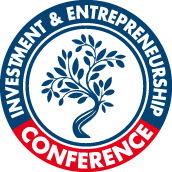In Tunisia, the birthplace of the Arab Spring, hope springs eternal. A silver lining in an otherwise opaque regional cloud, Tunisia has adopted a liberal constitution guaranteeing religious freedom and equality of the sexes. Its citizens have now voted in two successful parliamentary elections, and for the first time this December they freely elected a president. Tunisia's transition to democratic stability provides a compelling story for potential investors seeking to leverage the country's political progress.
It is no secret that North Africa has tremendous economic potential -- the Maghreb has long been viewed as a gateway to Sub-Saharan Africa and to Europe. Its recent indicators are among its most significant: not only is it the African country with the largest middle class, but its the 7th wealthiest overall and a top destination for foreign direct investment, with 10 million consumers, Tunisia's economy is growing at 2.7 percent and ranks 44th in the world in terms of venture capital availability. It is the second largest exporter of olive oil. According to the World Economic Forum, it is the 13th most successful country in enrolling its children in primary school. Recently, it was ranked 32nd globally in math and science education quality. These fundamentals are favorable for long-term growth.
But the pathway to pluralism has been long and investors have faced their fair share of hurdles as well. Infrastructure challenges and unfavorable business regulations are chief among the roadblocks that have hampered regional investment. And given the fighting raging in Libya, security concerns and apprehensions about the business environment are warranted, especially in an economy where youth unemployment is projected to reach 28 percent in 2015, according the International Labour Organization.
Despite these challenges, Tunisia has stayed the course on its political evolution while at the same time focusing on maintaining a secure environment and a viable economic framework. This process takes time - understandably - but Tunisia is headed in the right direction. At a time when so many other countries in the region have regressed in these areas, now is the moment for the US and the international community to demonstrate their steadfast commitment to Tunisia by supporting the economy of this fledgling but still fragile democracy.
IEC Tunis, March 5, 2015
Indeed, the Tunisian American Chamber of Commerce, in partnership with the US Department of State and the Aspen Institute's PNB-NAPEO, a public-private partnership, are organizing the third annual Investment and Entrepreneurship Conference (IEC) set to take place on March 5, 2015 in Tunis. This conference sends a clear message to all stakeholders interested in security, stability, and growth: for those who are committed to fostering long-term economic stability, curbing youth unemployment, and generating a solid return on their investment, now is the time to invest in Tunisia. The voices of hope and change need to know they matter and are supported.
The IEC will convene more than 300 government and private sector stakeholders, in addition to civil society activists and entrepreneurs, to showcase the business potential of the Maghreb through discussions focusing on entrepreneurship, investment, energy, technology, innovative finance, and closing the youth skills gap in the region. It comes at the right time and in the right place -- Tunisia, already a symbol of pathways to change in the region, is poised to reshape these sectors in North Africa and the broader Middle East as its new government executes its economic strategy.
If we are to learn one thing from the Arab uprisings and their reverberations, it's that weak states with struggling economies can collapse in the blink of an eye. What they leave in their wake are disconnected and unemployed youth who are adrift and in despair. These are the malleable minds who are vulnerable to recruitment by extremists with flashy rhetoric.
In a recent article for the Washington Post, Vance Serchuk wrote, "If there is a legacy of hope and change in the Arab world the Obama administration can help secure, it will be [Tunisia] -- and the coming months will be key." The IEC this week demonstrates willingness on the part of the US and its allies to help Tunisia and the greater Maghreb to succeed. Still, more must be done if business and democracy are to improve in North Africa.
